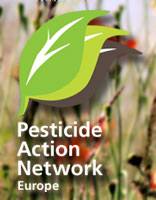12 July 2006, Brussels
EU lacks leadership to fight pesticides threats
After a year's delay, the European Commission today adopted its 'Thematic Strategy on the Sustainable Use of Pesticides', with a proposal to revise the EU pesticides market authorisation rules. It also issued a proposal for a Framework Directive on the Sustainable Use of Pesticides. Environmental and health groups doubt that the Strategy will meet the goals of making pesticide use more sustainable and phasing out the most harmful products within a generation. The Sustainable Use Framework lacks enforceable targets and deadlines for reducing farmers' dependency on pesticides. The revision of pesticides authorisation rules introduces some positive elements, including a ban on hazardous ingredients and encouraging their substitution with safer ones, but falls short of fulfilling existing obligations. Instead, it introduces numerous loopholes including a flawed zoning system, where one country must accept another's authorisation of products.
"The Commission's strategy is a visionless patchwork. The Framework Directive is unworthy of the name and is unworkable and ineffective. It lacks enforceable targets or market- based instruments, like a pesticides tax, to achieve its ends", says John Hontelez, Secretary General of the EEB. "Using pesticides sustainably has to mean progressively reducing their use, making farmers less dependent on powerful chemicals producers. The worst pesticides, like those widely polluting our water, which are identified under Europe's water protection rules, should be banned immediately."
"There are plenty of good intentions, but no clear and enforceable actions. Even the simple and long-overdue ban on aerial spraying of pesticides is lost in the text", said Grazia Cioci, PAN Europe's Campaign Coordinator. "Countries are free to decide when and where aerial spraying occurs, but aren't obliged to tell bystanders or people living near sprayed fields."
The draft Framework Directive includes some positive measures for restricting aerial crop-spraying, establishing 'reduced' or 'pesticide-free' zones and measures to protect water resources, but leaves Member States ample leeway. The legislation fails to show how to break the unsustainable link between agricultural productivity and pesticides use. The proposed National Action Plans just contain a vague list of voluntary measures. They lack robust and enforceable targets for reducing pesticide use. What other measures are missing? The list is long: support for integrated pest and crop management; procedures for collecting and storing obsolete pesticides; mechanisms to promote a pesticide tax or levy system, which would support safer non-chemical alternatives and finance advisory bodies and independent training for farmers in effective pesticide-use reduction programmes.
The proposal to review the EU's pesticide approval system introduces a new zonal authorisation system for products and a mechanism to encourage the replacement of riskier pesticides with safer alternatives. The outlined zones include climatically-different areas like Brittany in northern France and Cyprus in the southeastern Mediterranean. If Cyprus authorised a specific product, France would have to accept its sale in French markets, too.
"The proposal seriously overlooks a great opportunity to reduce our chemical burden and better protect our most vulnerable people, such as children and unborn babies, even if health and environment ministers have pledged to make progress in this area by 2007," says Génon Jensen, of EPHA Environment Network. "Finally, the flawed zonal authorisation encourages companies to go 'country-shopping' to get authorisation and access to big markets, undermining governments' powers to reject pesticides in their national market."
"Yet again the Commission has failed to show leadership and protect its citizens and the environment. It is now up to governments and the European Parliament to show how serious they are about reducing hazardous chemicals and promoting sustainable farming", says Aleksandra Kordecka, Chemicals Campaigner, Friends of the Earth Europe.
— ENDS —
< Back


